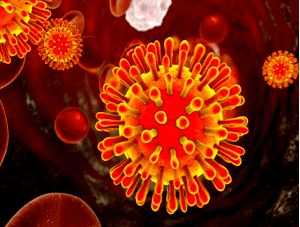PREVALENCE AND SEVERITY OF DEPRESSION AMONG PEOPLE LIVING WITH HUMAN IMMUNODEFICIENCY VIRUS IN YENAGOA, SOUTHERN NIGERIA
Keywords:
Depression, depressive disorder, mental health, prevalenceAbstract
Background: Depression is a mental health condition that affects approximately 350 million people worldwide. People living with HIV and AIDS (PLWHA) are at increased risk of developing this condition. Identification of location-specific factors is crucial to minimizing this presentation in this sub-population.
Aim: The aim of this study was to measure the prevalence, severity, and associated sociodemographic and comorbidity of depression among people living with HIV and AIDS in a laboratory setting in Yenagoa, southern Nigeria.
Methods: This is a cross-sectional study carried out on 282 PLWHA, aged 18 years and over. They receive HIV screening services in the laboratory of the Federal Medical Center, Yenagoa from March to April 2017. Sociodemographic data of respondents and selected comorbidities were collected using a modified structured questionnaire from the World Health Organization STEPS tool. Retrieving CD4+ count results from the laboratory registry, and height, weight, and body mass index (BMI) were measured. The presence of depression was assessed using the Patients Health Questionnaire-9 tool and performed a multivariate logistic regression analysis to identify factors associated with depression with a 95% confidence level.
Results: The mean age of the respondents was 40±8.8 years and most of them were females 195 (69.2%). Seventy-five (26.6%) of the respondents were depressed, of whom 10 (13.3%) had severe depression, while 41 (54.7%) had mild depression. The most common symptoms of depression were fatigue (30.1%) and dysphoria (28.7%). There was an association between depression and CD4+ count <350 cells/µL with an adjusted odds ratio (aOR) of 2.04 (95%CI: 1.14-3.63) and underweight with an aOR of 2.56 (95%CI: 1.01-6.47), while HAART with an aOR of 0.38 (95%CI: 0.18-0.84) was associated with decreased odds of developing depression.
Conclusion: Depression appeared among a significant proportion of people living with HIV and AIDS in Yenagoa, southern Nigeria, and fatigue was the most common symptom of depression. Lack of HAART, low CD4+ count, and being underweight appear to be the major factors negatively associated with depression. There is therefore a need to ensure people living with HIV and AIDS continue to receive HAART to improve CD4+ count and increase BMI.

Peer Review History:
Received: 2 February 2022; Revised: 7 March; Accepted: 12 April; Available online: 15 May 2022
Academic Editor: Dr. Sally A. El-Zahaby , Pharos University in Alexandria, Egypt, sally.elzahaby@yahoo.com
, Pharos University in Alexandria, Egypt, sally.elzahaby@yahoo.com
Reviewers:
 Prof. Dr. Hassan A.H. Al-Shamahy, Sana'a University, Yemen, shmahe@yemen.net.ye
Prof. Dr. Hassan A.H. Al-Shamahy, Sana'a University, Yemen, shmahe@yemen.net.ye
 Dr. Asia Selman Abdullah, University of Basrah, Iraq, asia_abdullah65@yahoo.com
Dr. Asia Selman Abdullah, University of Basrah, Iraq, asia_abdullah65@yahoo.com
Downloads

Published
How to Cite
Issue
Section

This work is licensed under a Creative Commons Attribution-NonCommercial 4.0 International License.









 .
.